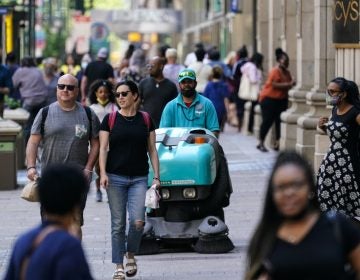SEPTA strike: The latest
-
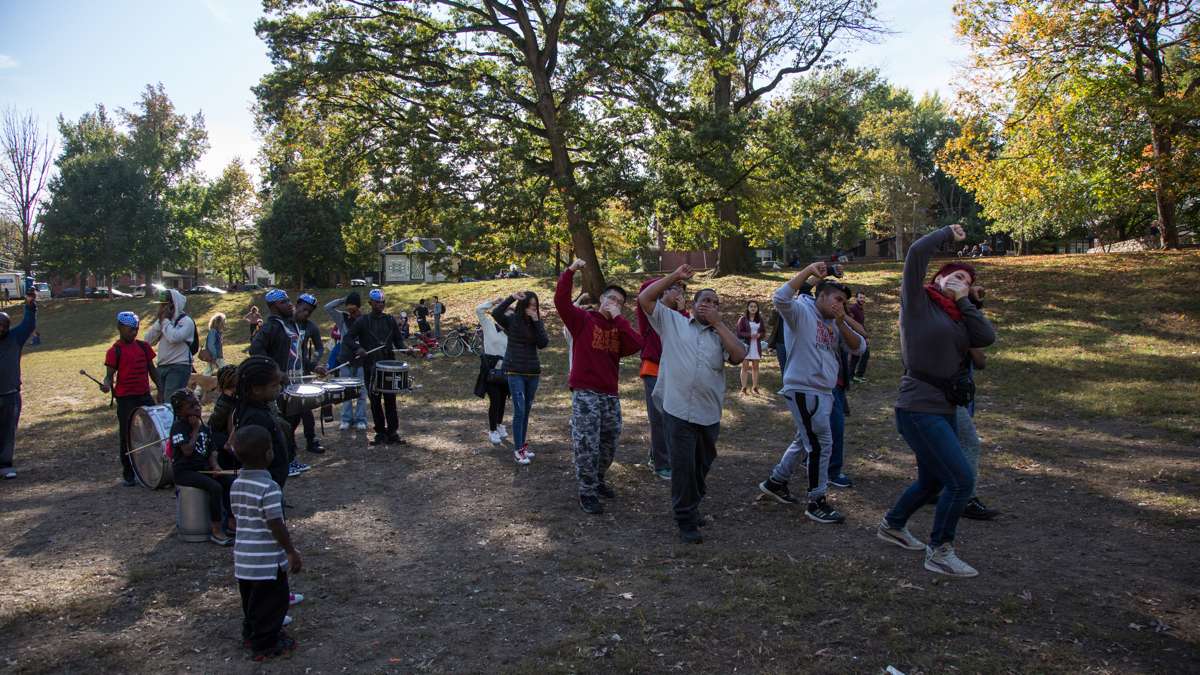
Marchers dance at Clark Park at the end of the 17th annual Peoplehood parade, Oct. 29, 2016. (Emily Cohen for NewsWorks)
-
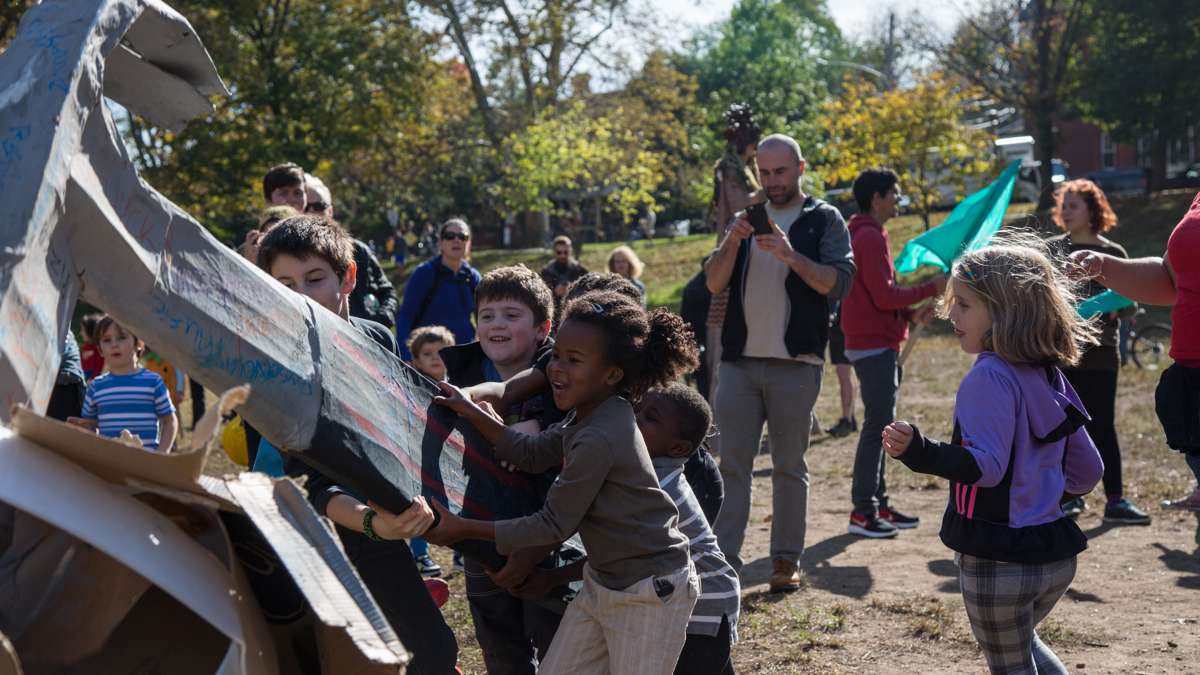
Children use a paper maché hammer to smash the boulder of injustice at the conclusion of the 17th annual Peoplehood parade Oct. 29, 2016. (Emily Cohen for NewsWorks)
-
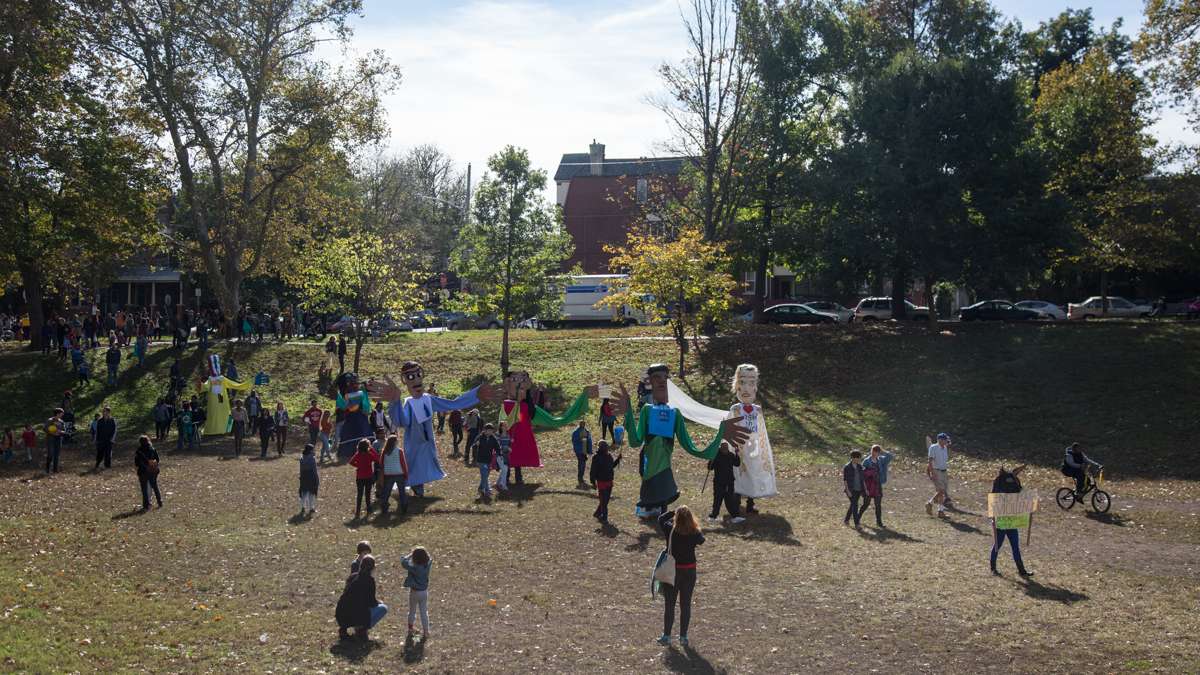
The 17th annual Peoplehood parade ends in Clark Park, Oct. 29, 2016. (Emily Cohen for NewsWorks)
-
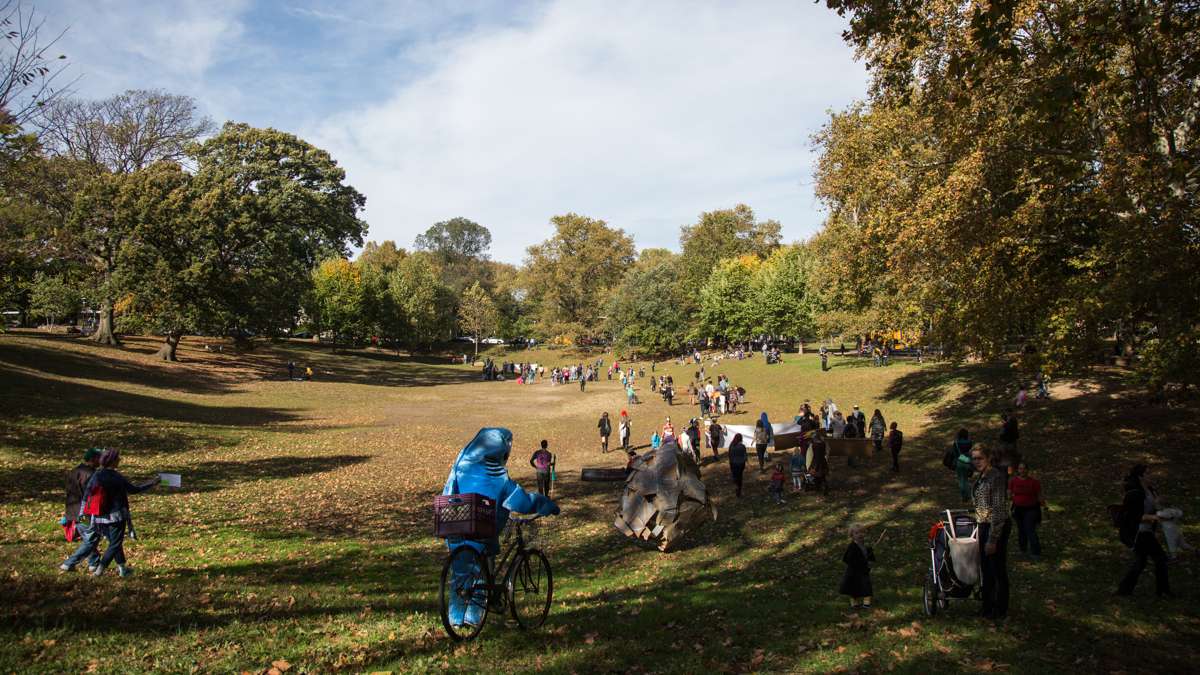
The 17th annual Peoplehood parade ends in Clark Park, Oct. 29, 2016. (Emily Cohen for NewsWorks)
-
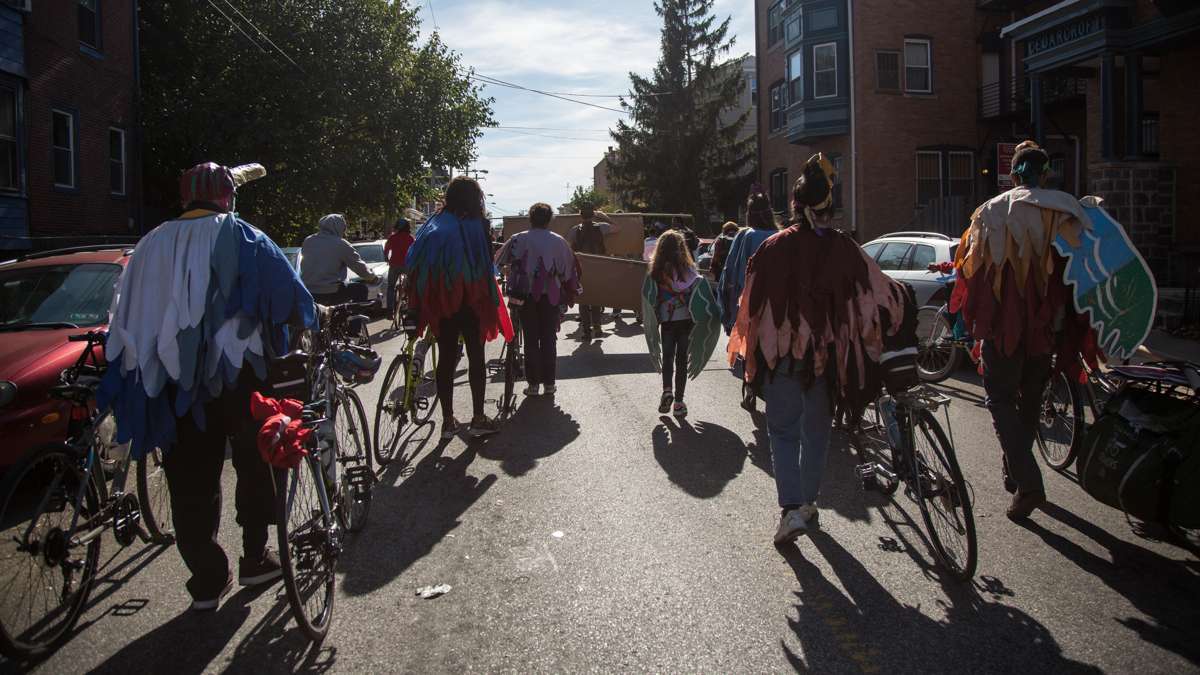
Members of the Neighborhood Bike Works delegation march as birds for the 17th annual Peoplehood parade in West Philadelphia, Oct. 29, 2016. (Emily Cohen for NewsWorks)
-
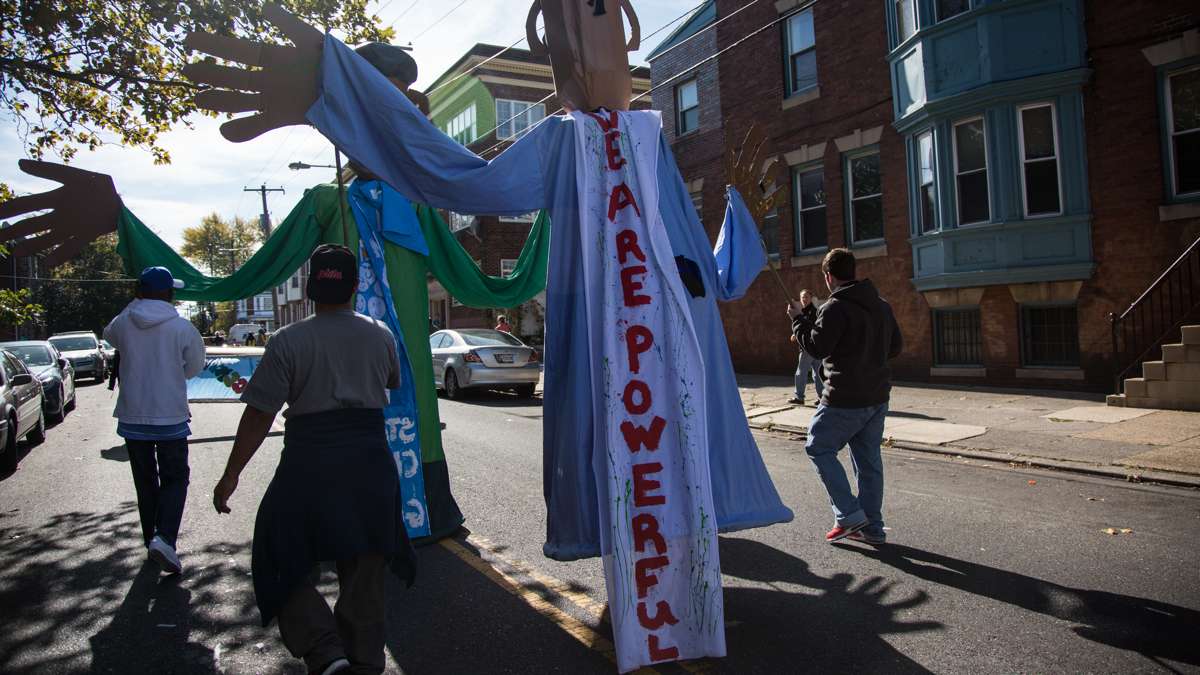
Representatives of Girard Medical Center carry the giant puppets they created for the 17th annual Peoplehood parade Oct. 29, 2016. (Emily Cohen for NewsWorks)
-
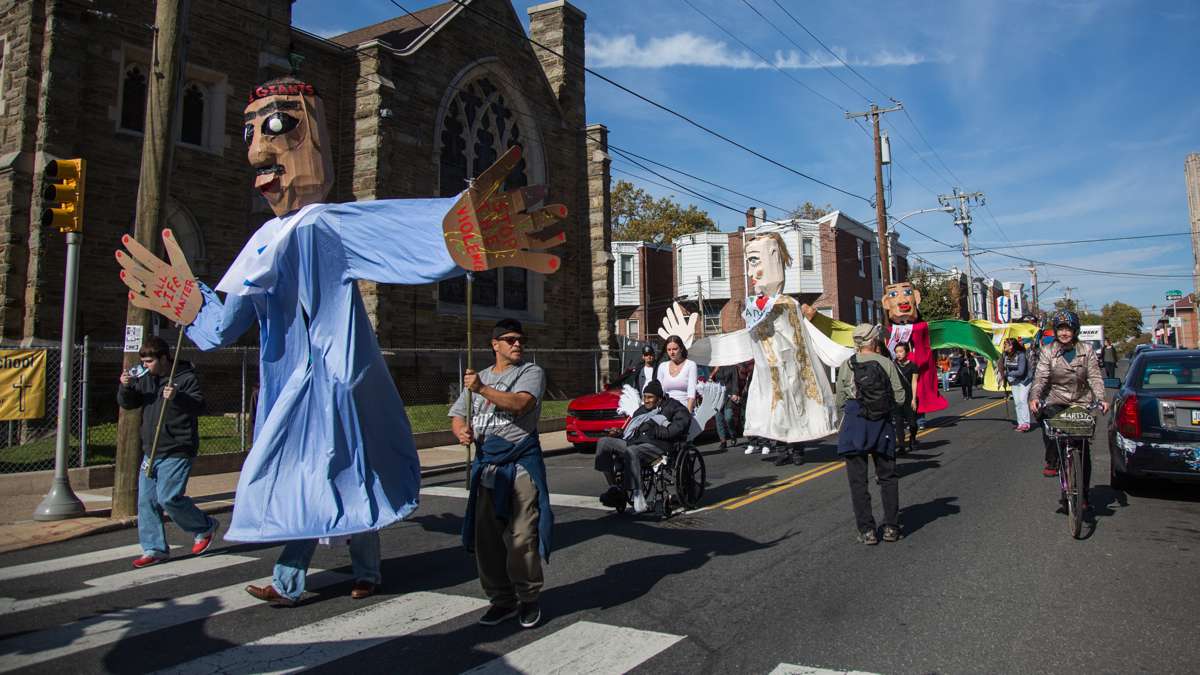
Representatives of Girard Medical Center carry the giant puppets they created for the 17th annual Peoplehood parade Oct. 29, 2016. (Emily Cohen for NewsWorks)
-
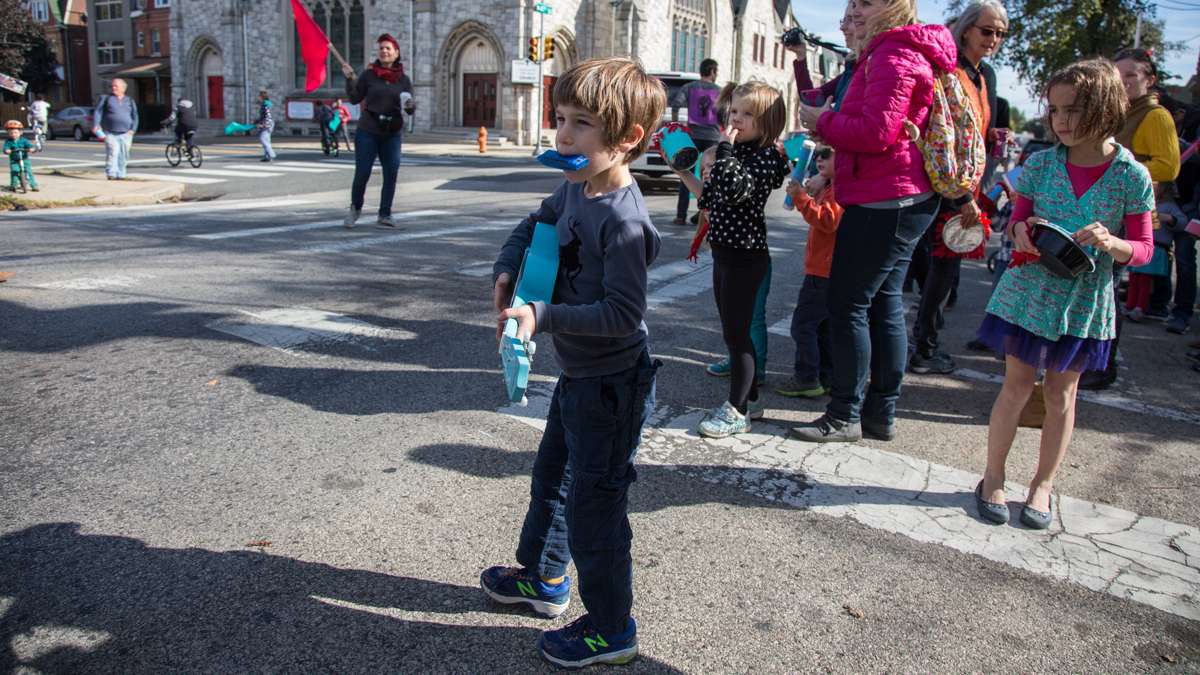
Kids from Children's Community School join the parade halfway through the route with noise makers. (Emily Cohen for NewsWorks)
-
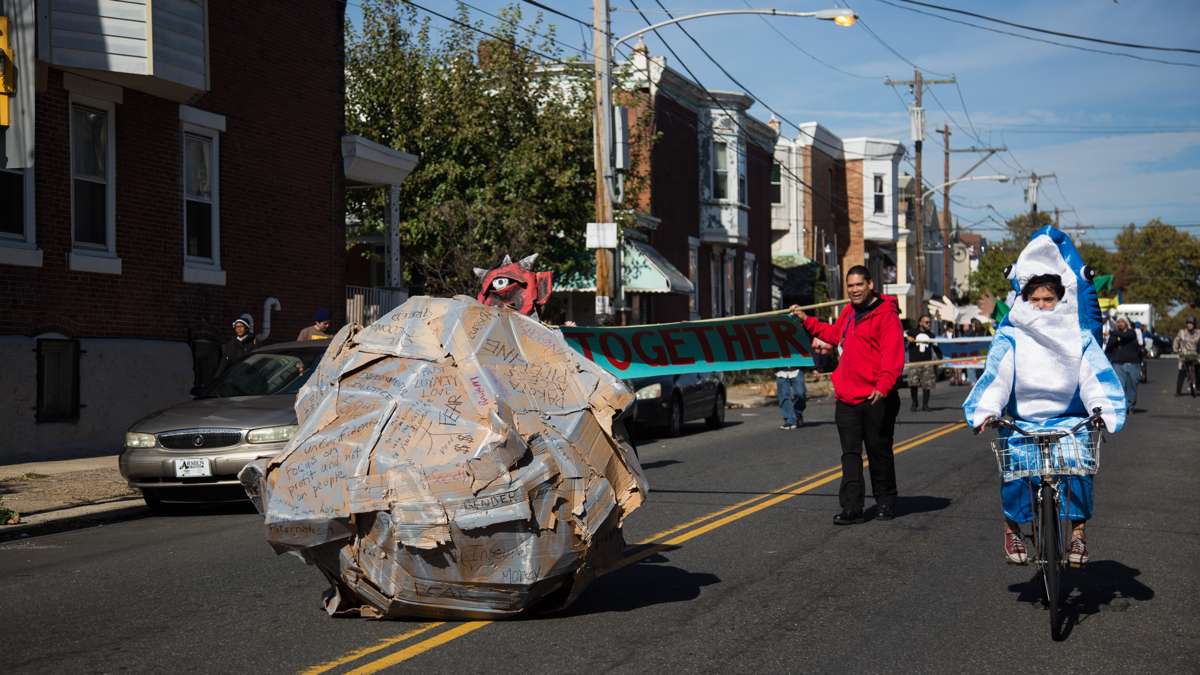
Social justice advocates march in the 17th annual Peoplehood parade Oct. 29, 2016. (Emily Cohen for NewsWorks)
-
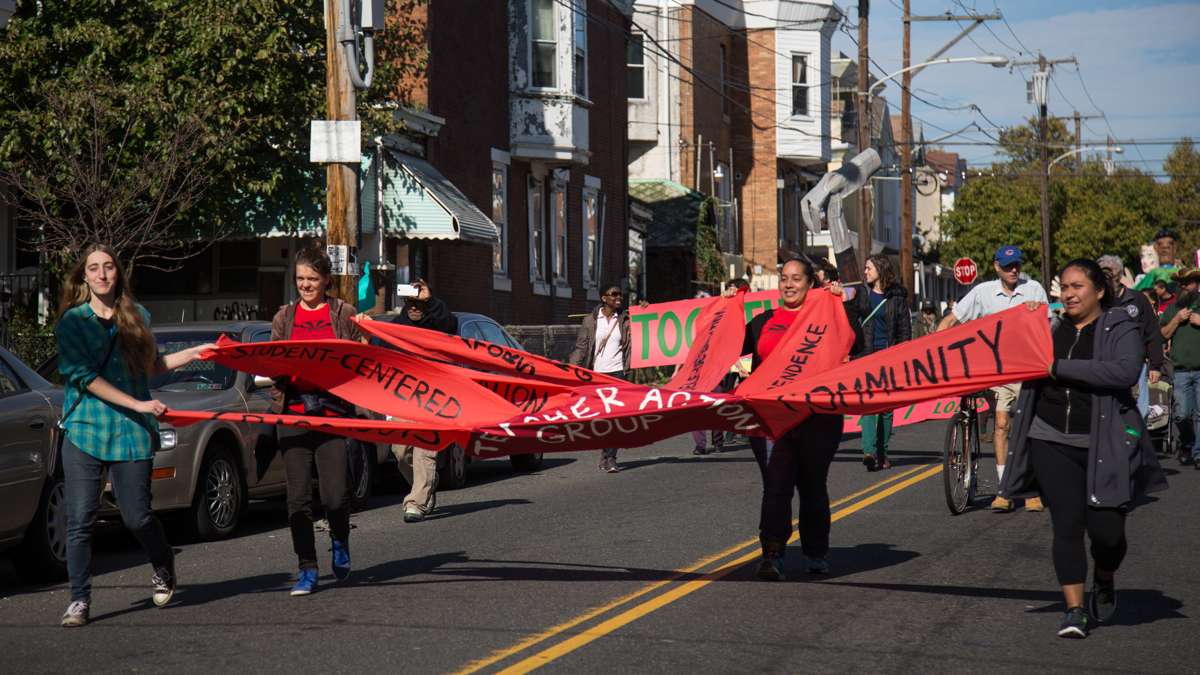
Teachers from Teacher Action Group march in the 17th annual Peoplehood parade October 29th 2016. (Emily Cohen for NewsWorks)
-
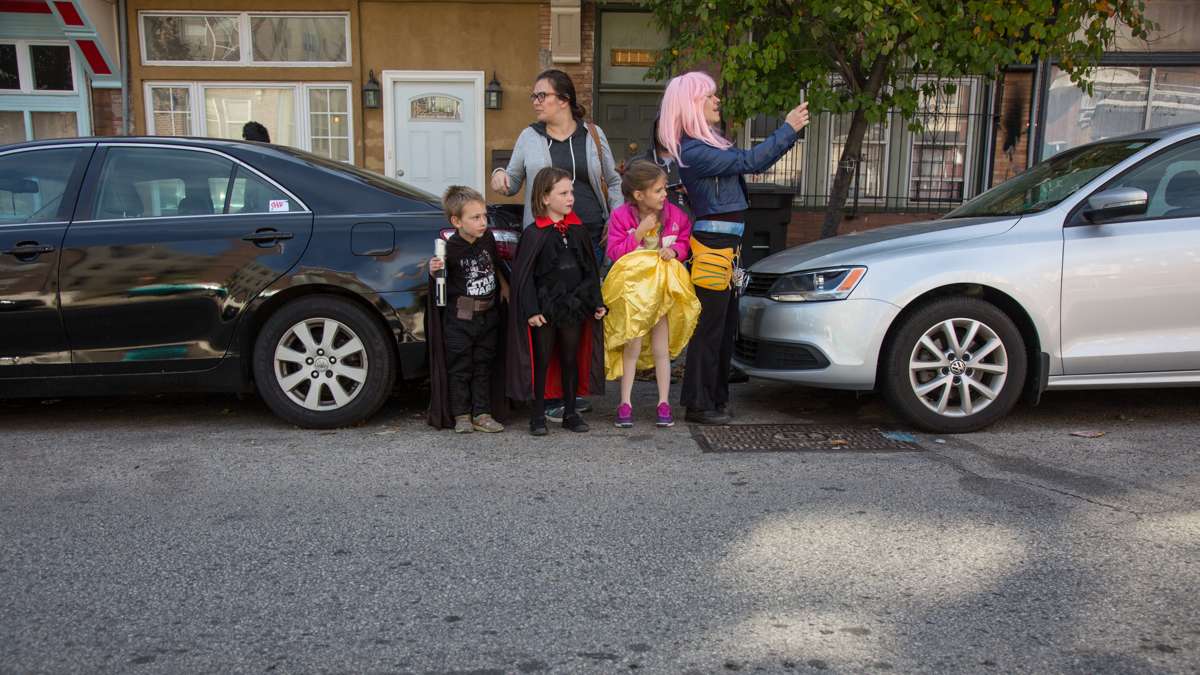
Community members watch as the 17th annual Peoplehood parade passes through their neighborhood in West Philadelphia, Oct. 29, 2016. (Emily Cohen for NewsWorks)
-
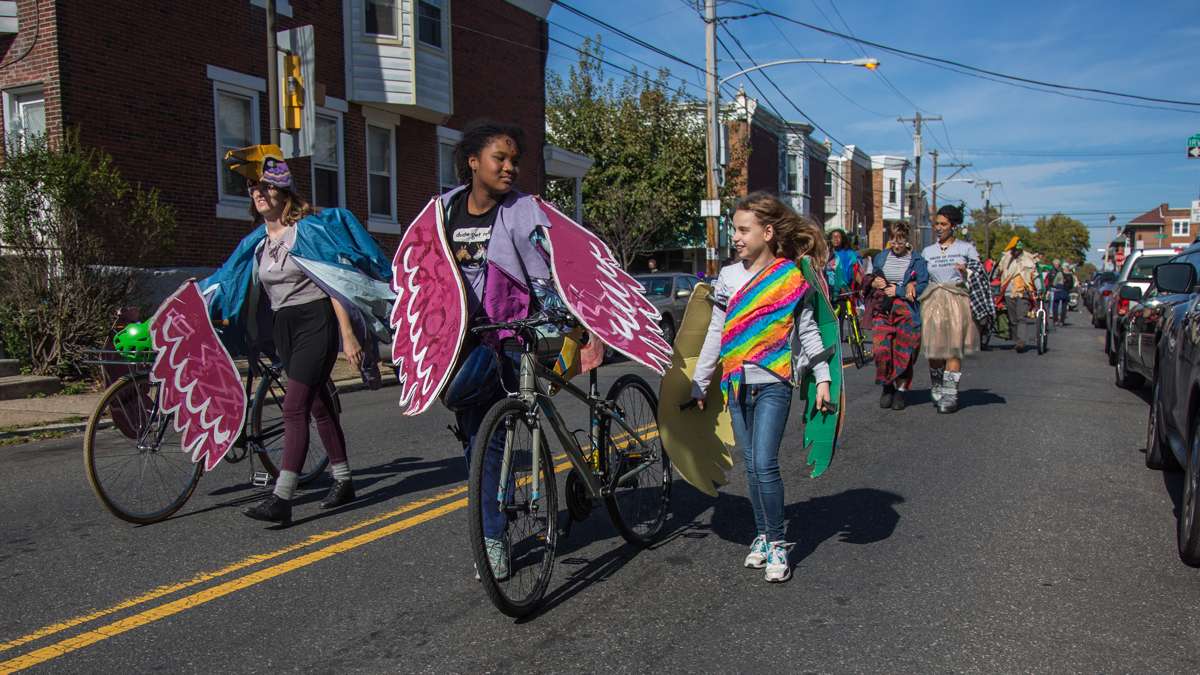
Young people from Neighborhood Bike Works chat as the 17th annual Peoplehood parade makes its way through West Philadelphia October 29th 2016. (Emily Cohen for NewsWorks)
-
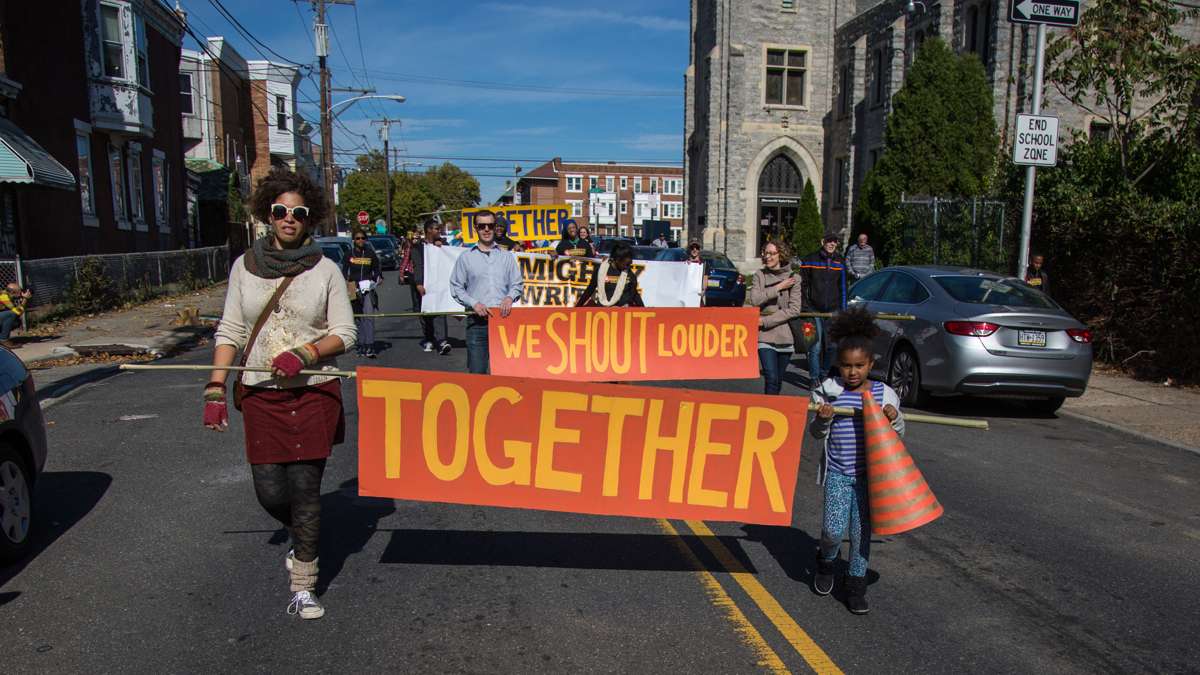
Social justice advocates march in the 17th annual Peoplehood parade Oct. 29, 2016. (Emily Cohen for NewsWorks)
-
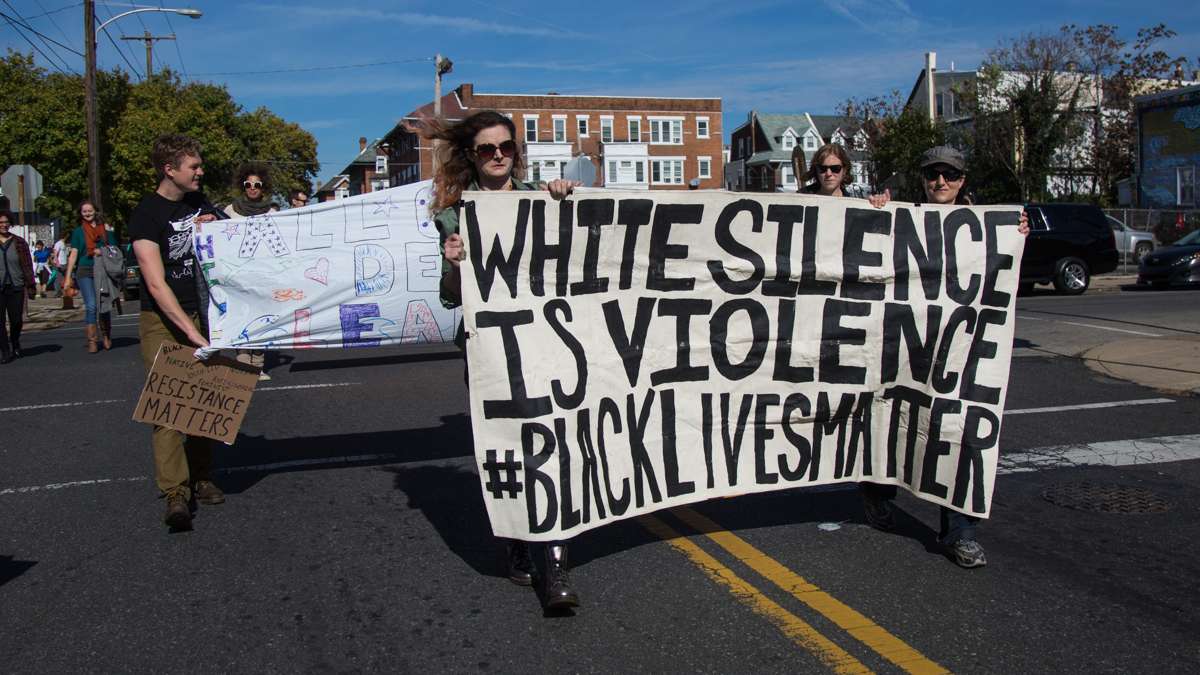
Social justice advocates march in the 17th annual Peoplehood parade Oct. 29, 2016. (Emily Cohen for NewsWorks)
-
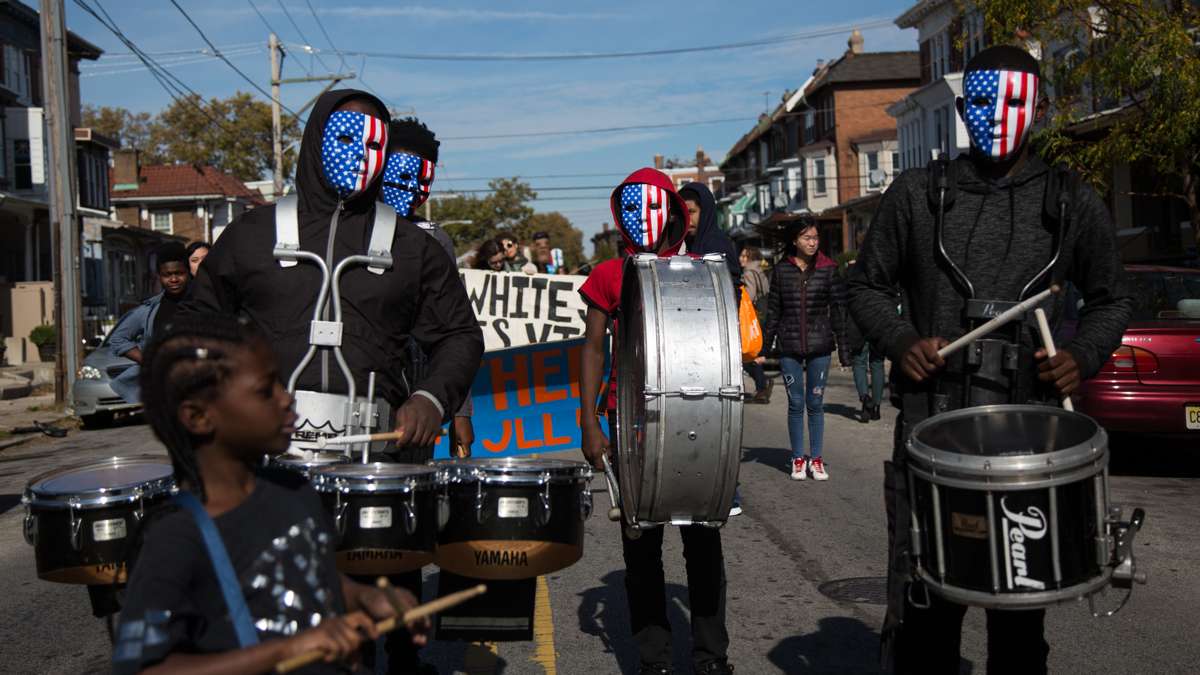
Young people from Extreme Creations in Southwest Philadelphia step into their drum line before the start of the 17th annual Peoplehood parade, October 29th 2016. (Emily Cohen for NewsWorks)
-
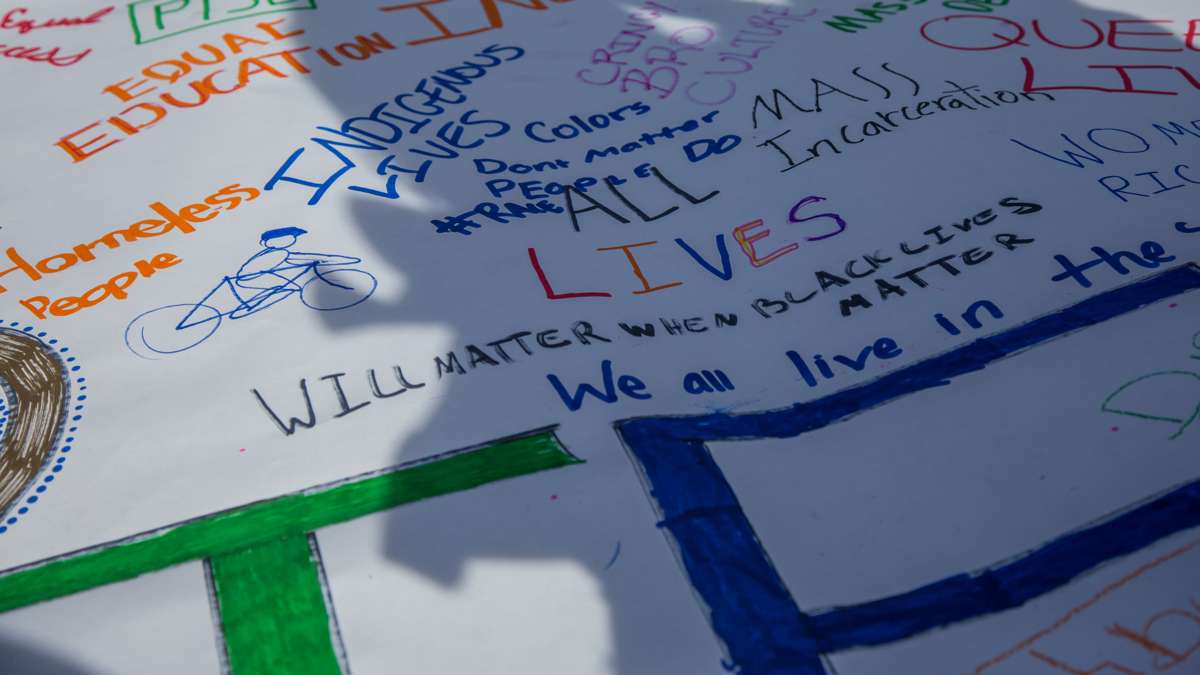
Kids from Neighborhood Bike Works covered a banner with issues that mattered to them. The banner will lead their delegation at the 17th annual Peoplehood parade in West Philadelphia, October 29th 2016. (Emily Cohen for NewsWorks)
-
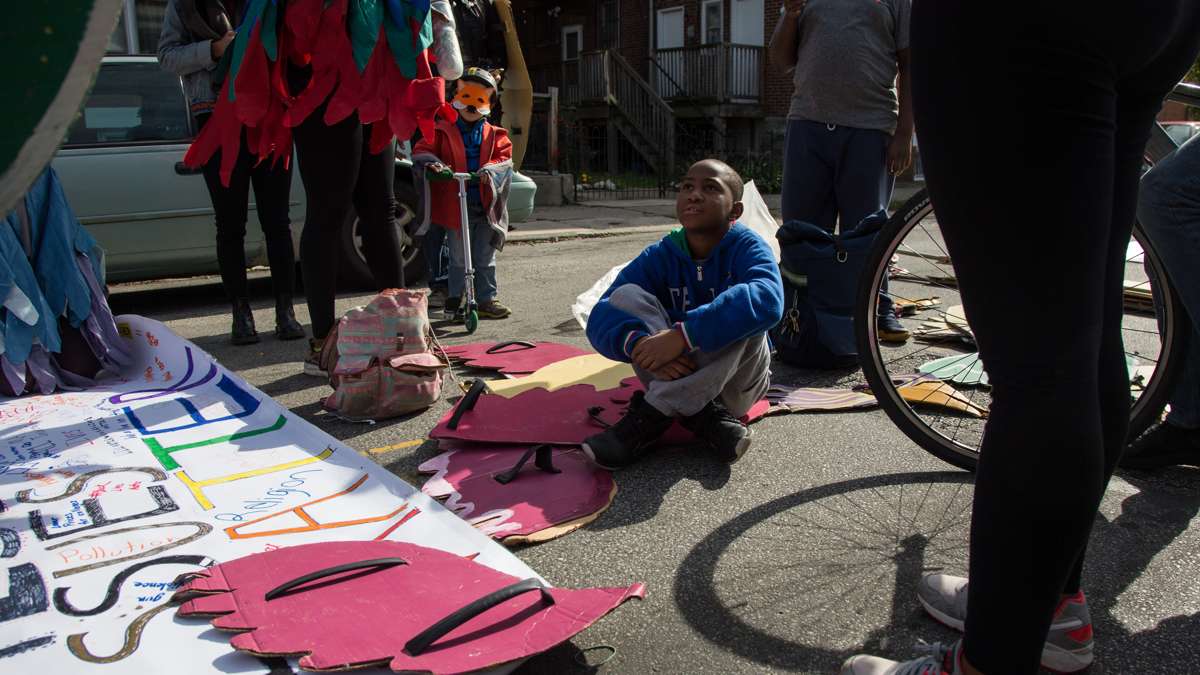
Asa Morrison, 10, discusses which issues matter to him at the Neighborhood Bike Works set-up spot before the 17th annual Peoplehood parade in West Philadelphia, October 29th 2016. (Emily Cohen for NewsWorks)
-
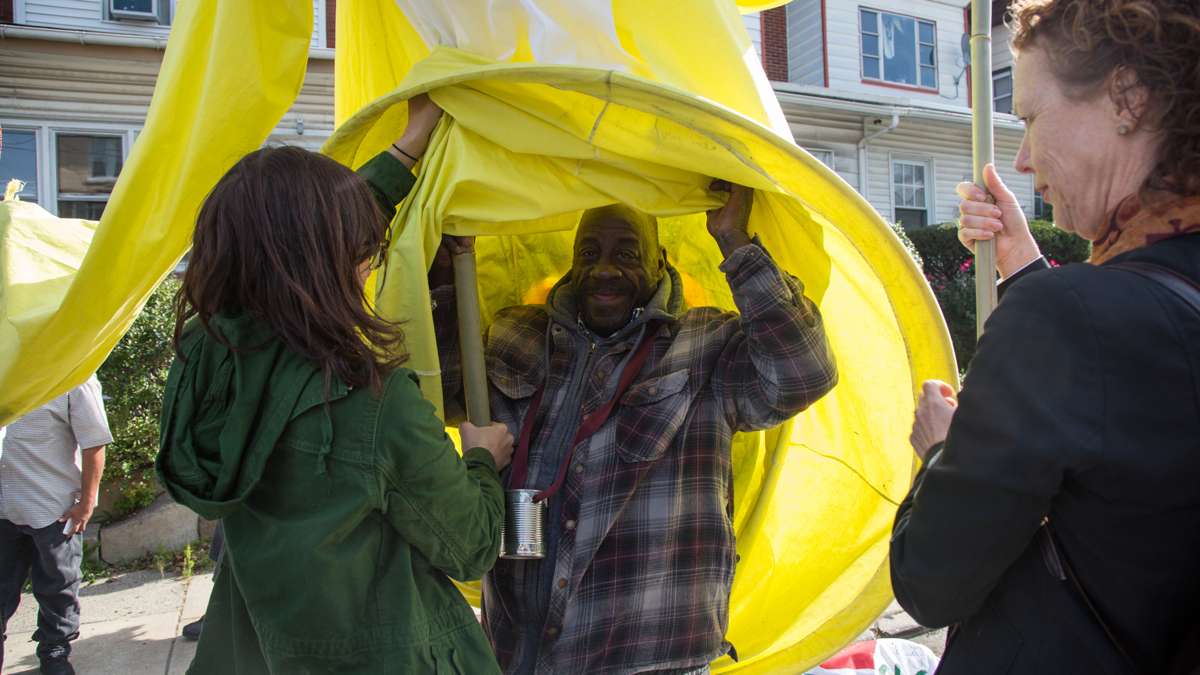
A member of the Girard Medical Center coalition steps out from under a massive puppet he and his fellow recoverers made for the 17th annual Peoplehood parade in West Philadelphia, October 29th 2016. (Emily Cohen for NewsWorks)
-
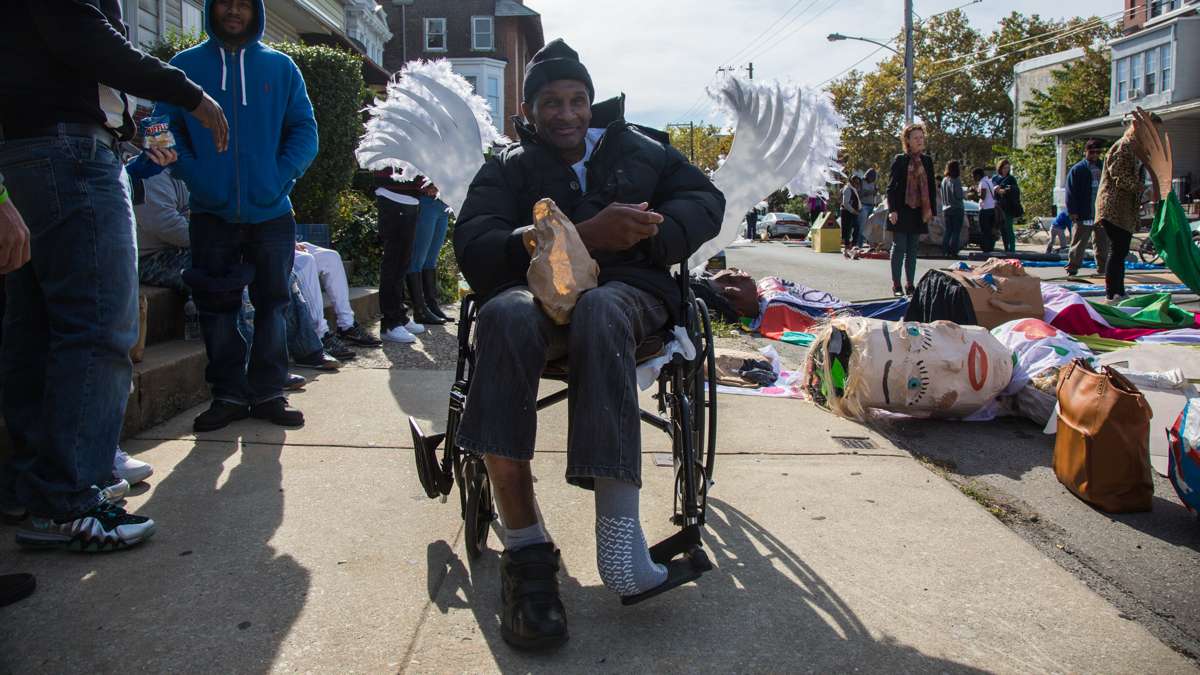
Dennis Cook sits in a chair decorated with angel wings to show of his support and gratitude to the organization Angels in Motion, which works with substance abusers and helps them get treatment. (Emily Cohen for NewsWorks)
-
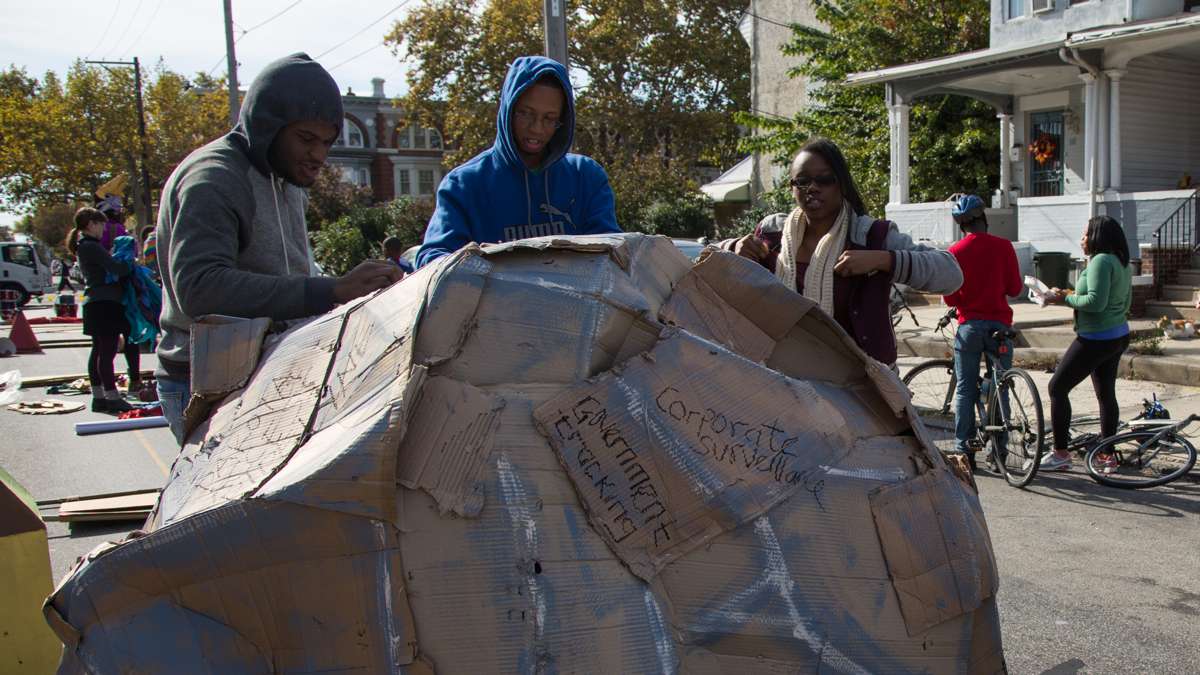
Teenagers from the Youth Volunteer Corps cover a cardboard boulder with different types of injustice before the start of the 17th annual Peoplehood parade in West Philadelphia, October 29th 2016. (Emily Cohen for NewsWorks)
-
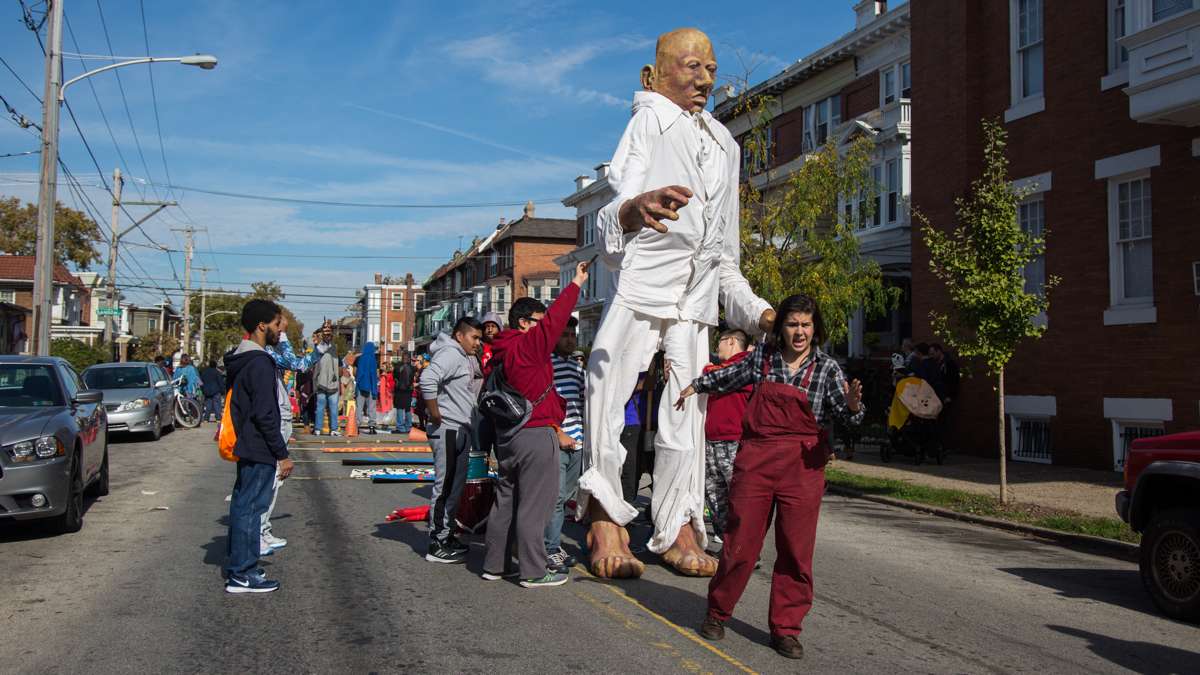
Rachel Adler, from Spiral Q, teaches with teenagers from the Youth Volunteer Corps how to make the giant puppet appear to be walking. The theme for this years annual Peoplehood parade was ''We might all be giant.''(Emily Cohen for NewsWorks)
-
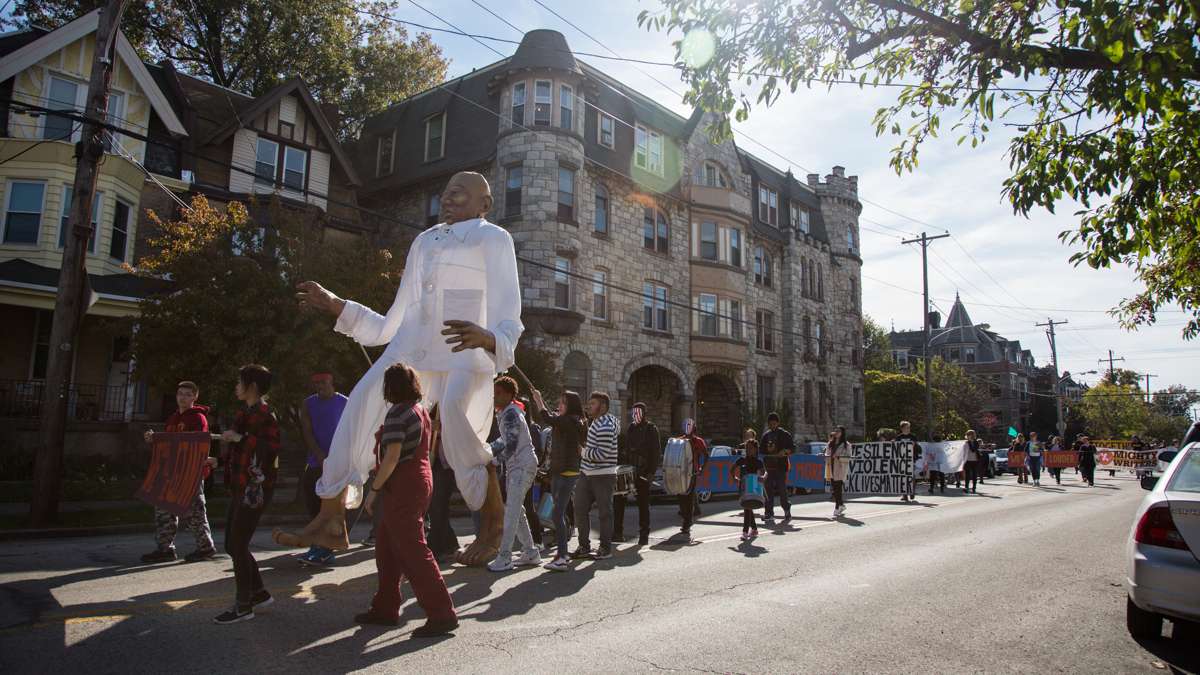
Social justice advocates march in the 17th annual Peoplehood parade Oct. 29, 2016, behind a giant puppet symbolizing the power of communities working together. (Emily Cohen for NewsWorks)
-
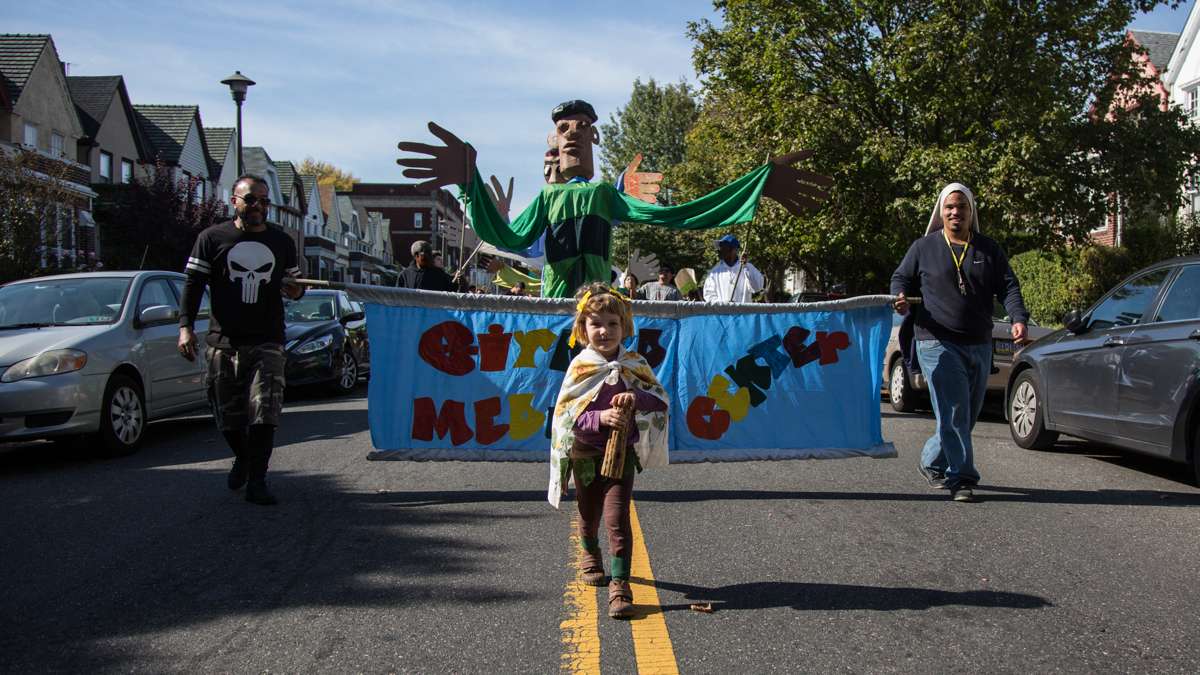
Beta Weissman, 4, marches with other members of her Philadelphia community at the 17th annual Peoplehood parade on Oct. 29, 2016. (Emily Cohen for NewsWorks)
-

-

-

-

-
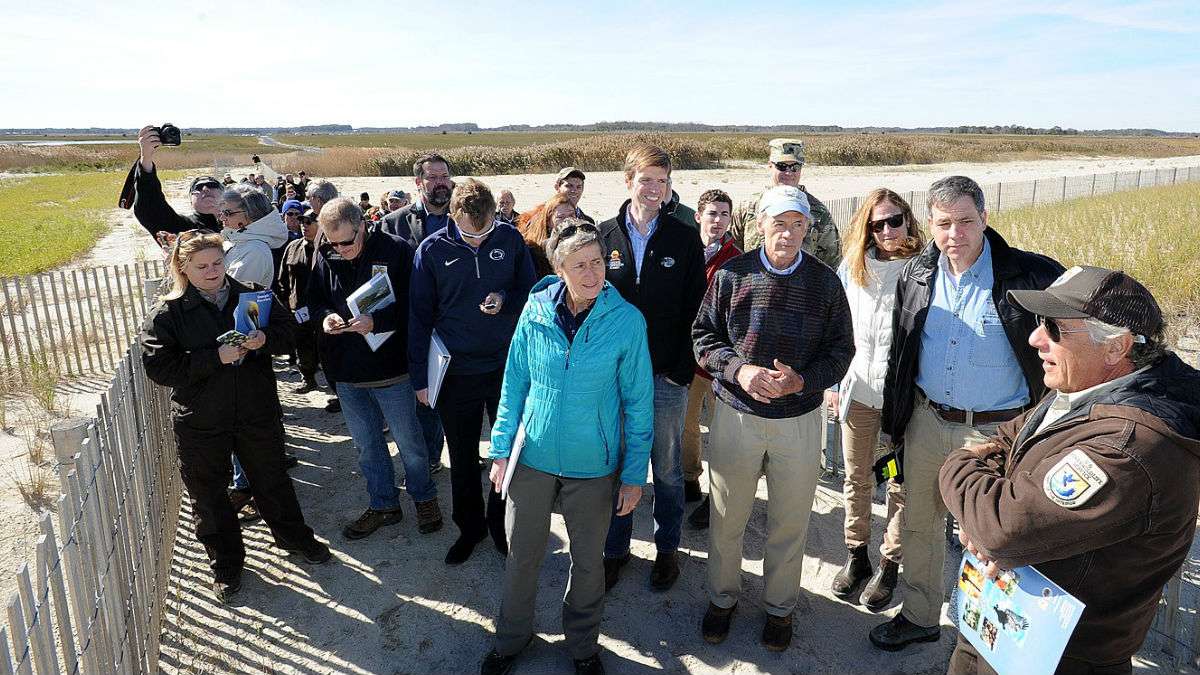
-

-

-

-

-

-
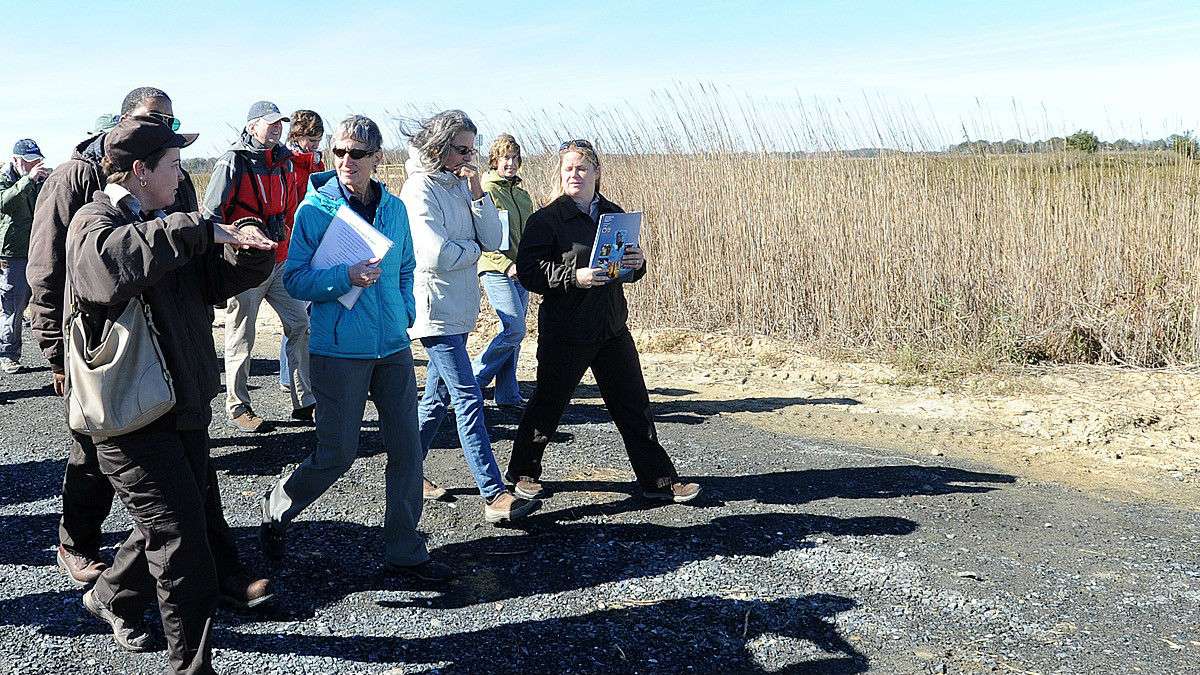
-

-

-

-
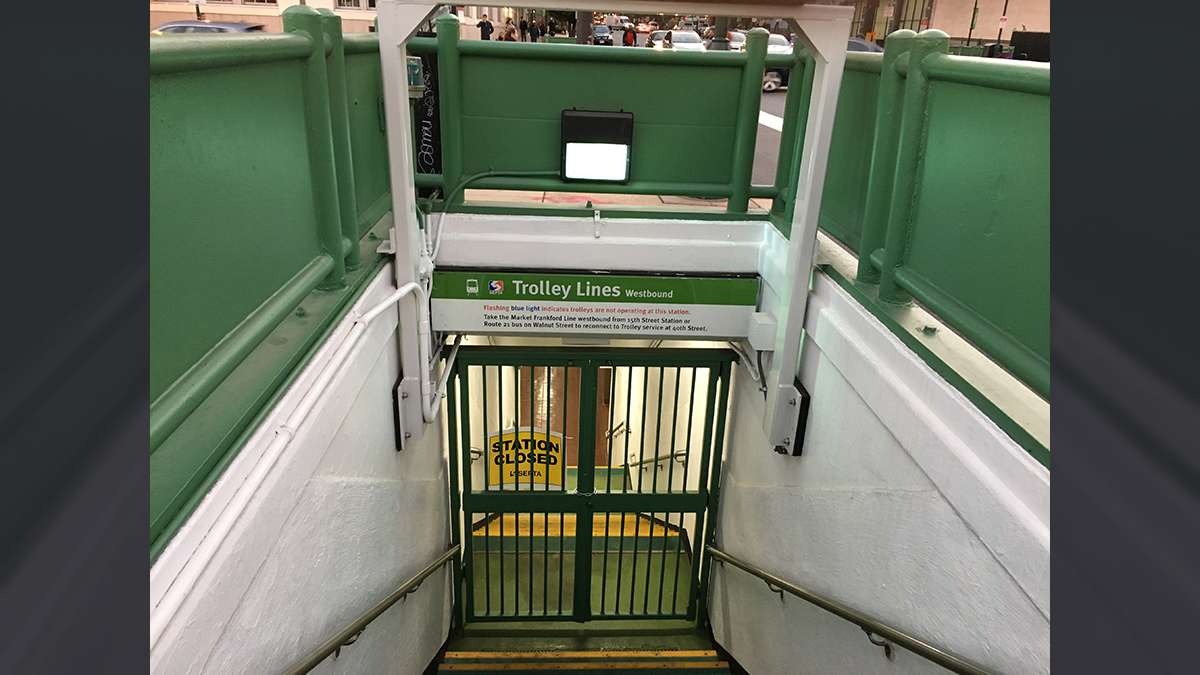
Closed SEPTA station at 22nd and Market streets (Naomi Starobin/WHYY)
-

-

-

-

-

-
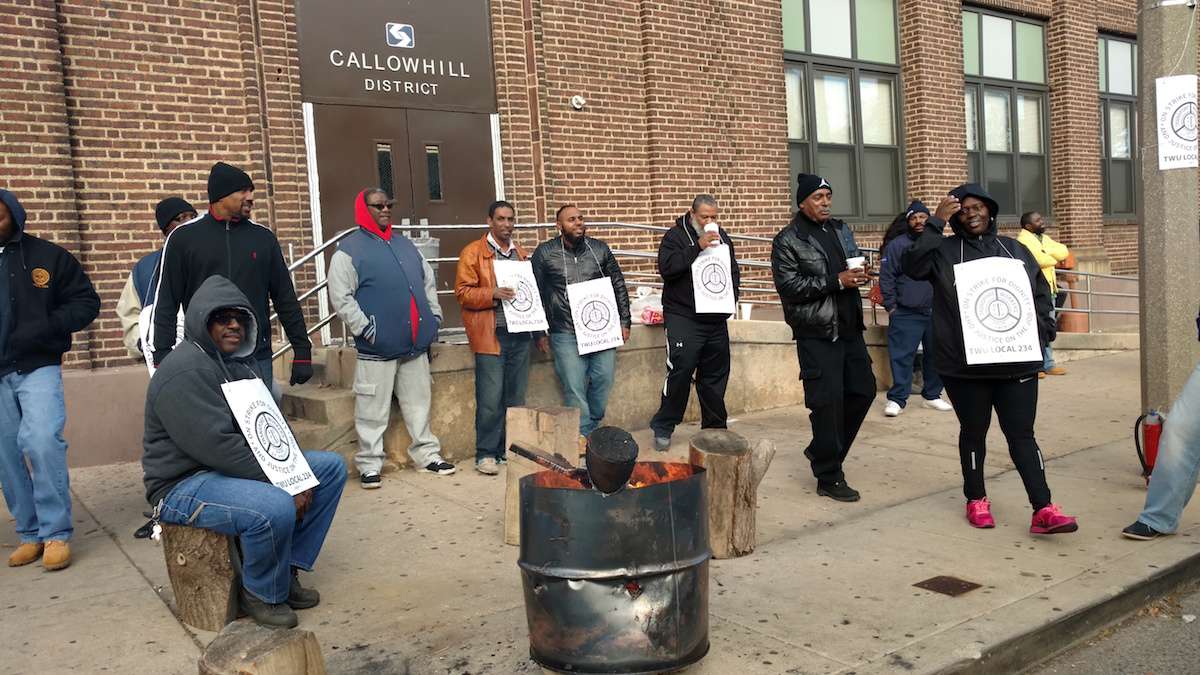
Striking SEPTA mechanics and bus operators picket outside the Callowhill Depot early this month. (Katie Colaneri/WHYY)
Click through for more on this evening’s commute.
Around 4,700 SEPTA workers went on strike early this morning, bringing the region’s public buses, trolleys and subways to a halt just a week before Election Day.
The strike announcement came at the stroke of midnight, with the Transport Workers Union Local 234 President Willie Brown, who heads the union’s negotiating team, announcing that members would report to the picket lines instead of their jobs this morning.
“Despite months of constructive and innovative proposals from our side of the table, management has refused to budge on key issues including safety issues that would save lives and not cost SEPTA a dime. There is no new agreement, so we are on strike,” Brown said.
Key issues stalling negotiations: pension reform, health care, and non-economic issues including shift scheduling, break time and other measures that affect driver fatigue.
The two sides will reconvene this afternoon.
Regional rail lines are not affected by the strike – although rail commuters were warned to expect delays as those who usually use buses, subways and trains might opt for trains to get around instead.
SEPTA decried the strike decision, saying it leaves “customers without the transit services they rely on for travel to-and-from work, school and medical appointments.”
“Mr. Brown walked away from a contract offer that would have provided his members pay raises, enhanced pension benefits, maintained health care coverage levels and continued job security, while also remaining fair and affordable for the taxpayers and riders who fund SEPTA,” the agency said in a statement issued this morning. “SEPTA negotiators stand ready and willing to continue bargaining, and the Authority urges Mr. Brown and TWU leadership to return to the bargaining table to negotiate an agreement that will end a severely disruptive work stoppage. We are hopeful that a tentative agreement will be reached before Election Day. If we foresee an agreement will not come to pass, SEPTA intends to seek to enjoin the strike for Nov. 8th to ensure that the strike does not prevent any voters from getting to the polls and exercising their right to vote.”
Mayor Kenney issued this statement early today: “I urge both SEPTA and the Transport Workers Union to maintain communication despite the work stoppage. Tens of thousands of Philadelphians rely on the buses, trolleys and subways, so it is vital for everyone that this situation be resolved as quickly as possible. And I urge residents to have patience during this period. We expect that traffic will be greatly impacted, so make alternate travel arrangements as soon you are able, including carpooling, walking and biking. Check with your employer about the possibility of a flexible work schedule to avoid the rush hours. And please – check on elderly neighbors who rely on SEPTA for trips to the grocery store or doctor. This period won’t be easy, but by pulling together as a community we can lessen the difficulties for everyone.”
The last SEPTA strike, in 2009, lasted six days.
All was quiet this morning at several stations. At the Broad Street Line’s Snyder Avenue station, a yellow “STATION CLOSED” sign had been taped to the gate. Someone had responded by scrawling: “F*** u” in black marker with an arrow pointing to SEPTA’s slogan.
And at Suburban Station in Center City, trains were already running late, in some cases by a hour or more. Yellow blockades stood at the ready to corral crowds, with trains expected to pick up commuters who usually use buses, subways and trolleys. Bill Malarkey, a commuter from West Chester at Suburban Station, says his train is usually 20 percent full – but was crammed this morning.
At the 69th Street Transportation Center, someone had strung up caution tape across the turnstiles barring passers-by.
Velma Alexis, an Upper Darby woman who works for the Philadelphia School District, said she was “stranded” there – she normally takes the Market-Frankford to the Broad Street Line – awaiting a ride from a co-worker.
Alexis says it’s not her place to judge the striking SEPTA workers, adding: “People need their rights and sometimes extreme measures have to be taken.”
Commuter Siani Cannady wasn’t as sympathetic.
“We understand it’s not fair for you, but now you’re inconveniencing us,” said Cannady, who had to get up extra early this morning to get a ride to 69th Street to catch her normal bus to King of Prussia. “So now all of us is just having a horrible week because you guys are feeling injustice or whatever. I hope it’s over tomorrow — I hope it’s actually over by the time I get off of work because going home, I don’t know how I’m going to get home from here.”
Bus commuter Brian Richards, who had to beg a ride from a friend, agreed: “Oh it’s really bad, man, it’s really bad. I was just hoping and praying they were going to continue running the buses and keep talking but… not so much, no.”
All those commuters not on buses, trolleys and subways? They took to the streets, by car, bike and foot. Traffic snarled, and tempers flared as congestion clogged roads and sidewalks.
Dustin Albert got caught in traffic trying to take his kids to Andrew Jackson Elementary School in South Philadelphia, so they were late to school.
“Broad Street’s a mess,” Albert said. “I’m hoping that I don’t have a parking ticket.”
Janice Phillips decided to walk the 20 blocks she normally travels by bus from Center City to her job in University City.
“Taking cabs is not in my budget,” Phillips said. “I hope they can resolve it quickly – hopefully by the end of the day. I know that’s kind of like pie in the sky.”
Some employers were going the extra mile, literally, to get their staff to work this morning. The Woods School, a residential facility for people with developmental disabilities, had a shuttle bus waiting at the Langhorne regional rail station to pick up employees who normally take the bus from Philadelphia.
Philadelphia public schools superintendent William R. Hite Jr. issued a letter to parents to answer questions arising from the strike. Thousands of the district’s 130,000 students use public transit to get to more than 200 schools around the city.
“School attendance is vital to the success of our students, and there is no substitute for classroom learning,” the district said in a statement. “We understand the strike will cause those who normally use public transportation to find alternatives. At the same time, it is important that we continue the regular school schedule for our students.”
Meanwhile, SEPTA workers weren’t having an easy day either.
Derrick Robinson, who’s been a bus operator with the agency for 18 years, said he’s been getting flak from his friends and family for walking off the job.
“They really mad and [think] like we greedy,” said Robinson, who joined other striking SEPTA workers warming themselves by a wood fire burning in a trash can outside the Callowhill Depot in West Philadelphia. “They don’t understand. I try to explain to them. They don’t want to know. All they know is we not running.”
Robert Alexander has been a SEPTA bus driver for 43 years and has seen “a whole lot” of strikes over his career. Alexander said if he were to get a bump in pension benefits, he would retire “the next day.”
“You wouldn’t see me no more around here,” he said with a laugh.
Gwen Clarkson works as a SEPTA instructor, training employees how to operate trolleys and buses.
“We work with people everyday so we don’t really like inconveniencing people,” Clarkson said. “Hopefully they’ll come to a conclusion really soon.”
All SEPTA city bus routes, trolley routes 10, 11, 13, 15, 34 and 36, the Market-Frankford Line and Broad Street Line are not operating. SEPTA Regional Rail Lines,the Norristown High Speed Line, Trolley Routes 101 and 102 and Suburban bus routes are operating on their normal schedules, as well as CCT, LUCY, and Routes 204, 205, 310 and Cornwells Heights Parking Shuttle. Check www.septa.org for further details.
The city’s Office of Emergency Management has offered tips online for commuters during the strike:
The Philadelphia Parking Authority has modified rates for PPA garages and parking enforcement in designated areas during the strike.
Parking is prohibited on both sides of Broad Street, from Spring Garden to South Street.
Bus zones may be used by any vehicle to drop off and pick up passengers, but vehicles may not be left unattended.
The city will provide a free shuttle for city employees along the Broad Street Line and Market Frankford Line. All riders must show proof of city employment.
Non-city employees are encouraged to work with their employers for alternate transportation strategies.
Jurors may take the city-employee shuttle with proper documentation and photo ID, and will receive direction when they call to confirm their reporting times.
IndeGo will boost capacity at four stations in Center City and will offer a valet service at the Municipal Services Building to allow for efficient check in and out. Details: www.rideindego.com or @RideIndego on Twitter.
Commuters can get transit updates on ReadyPhiladelphia, the city’s emergency text and email alert system. Details: www.phila.gov/ready.
Correction: This article was edited to show that 4,700 SEPTA workers went on strike, not 5,000 as originally reported. While TWU represents 5,125 SEPTA workers in all, only 4,700 are on strike.
WHYY is your source for fact-based, in-depth journalism and information. As a nonprofit organization, we rely on financial support from readers like you. Please give today.


